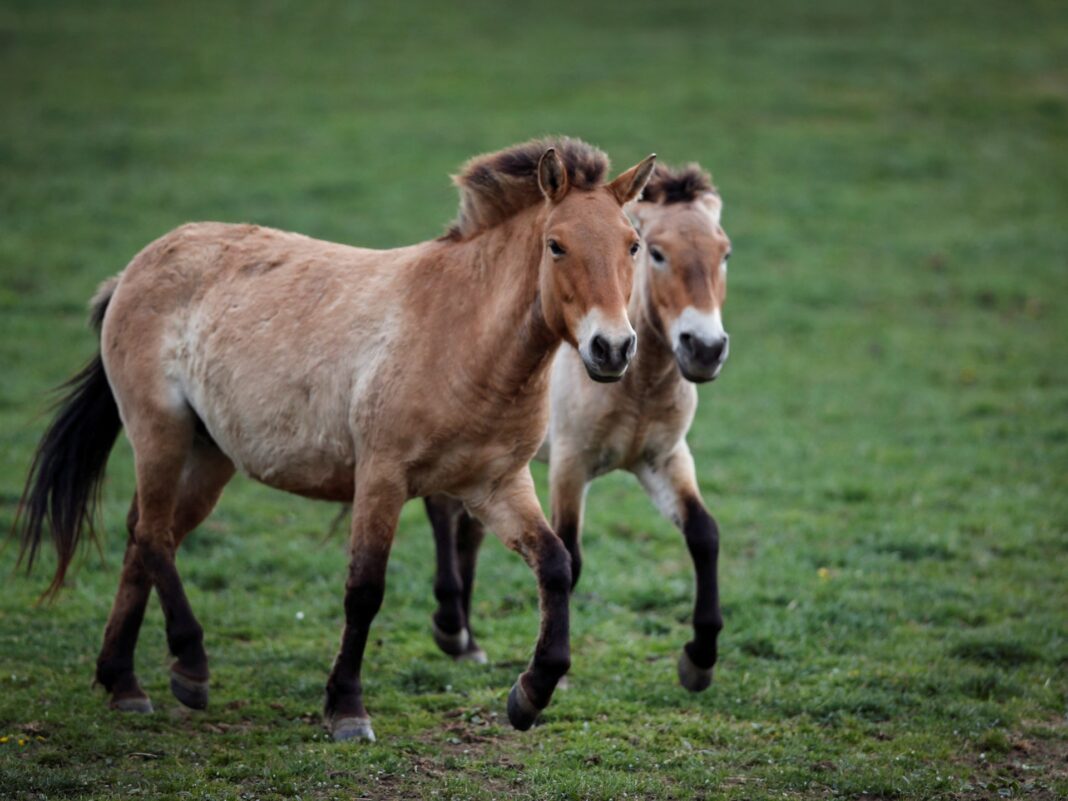The first group of seven horses arrived in Kazakhstan in early June and a further 40 are planned for the next five years.
Przewalski’s horses have returned to the steppes of Kazakhstan after nearly 200 years, part of an ambitious scheme to reintroduce the world’s last wild horses to their original habitats.
The endangered sandy brown horses once roamed across Central Asia. They were named after Russian geographer Nikolay Przewalski, who discovered them in the late 19th century, by which time their range had been reduced to only one part of western Mongolia.
Now, the Prague Zoo in the Czech Republic, which manages the studbook for the species, wants to begin returning them to the Altyn Dala, or Golden Steppe, region of central Kazakhstan, a vast area of grassland and wetlands covering some 7,000 square kilometres (2,700 square miles).
In early June, the first group of seven arrived. On Thursday, four others landed in Arkalyk. About 40 more are planned for the next five years.
“This is an event of historical import, the seven Przewalski’s that we transported here by two CASA planes represent the first individuals of this species in central Kazakhstan in hundreds of years,” said Prague Zoo director Miroslav Bobek.
Czech army planes transported the horses – a stallion and six mares – on flights from Prague and Berlin to the Kazakh city of Arkalyk, from where they travelled seven hours by truck, accompanied by zoo keepers.
Thursday morning, a Czech Army CASA aircraft landed in Arkalyk, central Kazakhstan, with four more Przewalski’s horses. Just before 5pm local time, the mares, Tessa, Wespe, Umbra and Sary, were released into an acclimatisation pen in the Altyn Dala area.https://t.co/O6Qtknmdr4 pic.twitter.com/0NojI1Fqq0
— Prague Zoo (@prague_zoo) June 7, 2024
The horses will stay in an acclimatisation enclosure for a year to learn to find water and food during the steppe’s harsh winters.
Przewalski’s horses had disappeared from the wild by the end of the 1960s but remained in captivity.
They have already been reintroduced in China and western Mongolia, where the population now numbers 850. In Kazakhstan, the reintroduction is part of conservation efforts – the horses eat a wide variety of grasses, in turn spreading seeds.
“It is quite important to have these wild horses,” said Albert Salemgareyev, lead specialist for the Association for the Conversation of Biodiversity in Kazakhstan.







